A2 Areas: Philology, Law, Theology, Social Sciences, Humanities and Administrative Sciences, Sports Sciences \ 1-1

The portrayal of women in mythology, folklore, and literature as discordant palimpsests of universal realities canonizes patriarchal dicta, which the cherubim of politics, literature, and hermeneutics scrape clean and reinscribe as often as is necessary. In this book, Dr. Boşnak analyzes from a feminist perspective the origins of overt and covert misogyny in various works of nineteenth-century American literature: Washington Irving's “Rip Van Winkle” and “The Wife”, Nathaniel Hawthorne's The Scarlet Letter, and The Blithedale Romance, Henry James' The Bostonians, and The Turn of the Screw. Yoked together, the American writers champion the recurrent mythic patterns of the archetypal women in the Western canon: the pre-lapsarian and post-lapsarian Eve (Eve before and after the Fall) and that of Lilith (the Dark Lady). Tracing themes and motifs in American literature to their archetypes, Dr. Boşnak deconstructs claims about the “uniqueness” of American culture and letters.
Metin Boşnak is a published poet, essayist, and scholar of Comparative Literature and American Studies at Istanbul Sabahattin Zaim University.
Metin Boşnak is a published poet, essayist, and scholar of Comparative Literature and American Studies at Istanbul Sabahattin Zaim University.

This book is a labor of love inspired by the continuous interaction and interaction between young Greek and Turkish participants in numerous forums that the two editors have nurtured for close to a decade. In an international order dominated by hostility, distrust and negative stereotypes, dialogues across borders are a positive response. The conflict between Greece and Turkey is considered one of the most complex conflicts in Europe, and possibly beyond. For decades, the bilateral strife has repeatedly led insecurity as well as periodic violence and war. Also, in this part of the world, the past weighs heavily on the present. What happened long ago determines what happens today and may stand in the way of a peaceful future, or even in imagining one. Conflicts bedevil the bilateral relationship on multiple fronts. As in other cross-border rivalries, we are witnesses to dynamic developments as new contentious issues have emerged to complicate the agenda.
With an eye on what the two sides can do together; this book presents original research co-written by at least one Greek and one Turkish scholar with the objective to provide policy recommendations that could help in bridging the gaps to enhance Greek-Turkish dialogue and cooperation.
With an eye on what the two sides can do together; this book presents original research co-written by at least one Greek and one Turkish scholar with the objective to provide policy recommendations that could help in bridging the gaps to enhance Greek-Turkish dialogue and cooperation.

This book, titled Contemporary Approaches in the Field of Economics, Finance and Management, consists of the studies presented online at the International Participated Economic Research and Financial Markets Congress (IERFM) held in Konya between 15-17 October 2020 and deemed appropriate to be published after the editorial review.
The book consists of 7 chapters in total and the chapters have been prepared by scholars studying in the fields of economics, finance and management, market professionals and those working in the financial media. The latest developments regarding the subject addressed in each section have been shared, discussed, evaluations have been made to be a source of motivation for new studies. Thus, it was tried to contribute to the literature by filling knowledge gap on the subject.
Similarly, in the future IERFM Congresses, it has been planned that the studies deemed appropriate after the editorial reviews will be published as book chapters. In this book, it is aimed to analyze the current developments in the field of economics, finance and business management in a scientific level. In this context, it is expected that the book will provide added value to the academic studies and people dealing with science.
The book consists of 7 chapters in total and the chapters have been prepared by scholars studying in the fields of economics, finance and management, market professionals and those working in the financial media. The latest developments regarding the subject addressed in each section have been shared, discussed, evaluations have been made to be a source of motivation for new studies. Thus, it was tried to contribute to the literature by filling knowledge gap on the subject.
Similarly, in the future IERFM Congresses, it has been planned that the studies deemed appropriate after the editorial reviews will be published as book chapters. In this book, it is aimed to analyze the current developments in the field of economics, finance and business management in a scientific level. In this context, it is expected that the book will provide added value to the academic studies and people dealing with science.
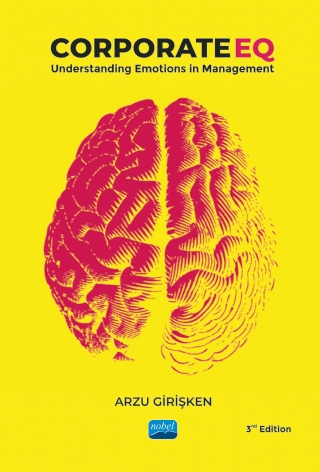
İn the current competitive environment, focuslng on the development of human Capital is increasingly becoming a competitive advantage for ali companies. Increasing the level of energy, motivation and passion of individuals vvithin an organization is key to increase productivity, decrease people turnover and improve the ability to cope with the increasingly frequent changes necessary to remain competitive in a hyper-competitive market.
İn this book, Dr. Arzu Girişken is clearly demonstrating how this approach, together with a relationship-oriented leadership, has a positive impact on the increase organisational emotional memory level, as well as, organizational innovation capacity ultimately leading to a superior performance of the vvhole organisation.
Massimiliano POGLIANI llly Global CEO
The pandemic due to the Corona Virüs has impacted corporations vvorldvvide, often forcing managementto choose betvveen bottom line and more humanistic considerations.
Inherent in these decisions is the concept of business emotional intelligence. İn Corporate EQ: Understanding and Managing Emotions, Dr. Girişken has given us some useful tools and insights to help navigate this new and difficult landscape.
Prof. Dr. Richard D. DE VEAUX
Vice President, American Statistical Association (ASA)
This book by Dr. Arzu Girişken takes an emotional look at businesses by these words: Emotions, Memory, Organization, İnnovation, Leadership, Performance, Employer, EQ.
This book is a must-have for anyone who is interested in these concepts. İt is bringing to life the state-of-the-art approaches which will be beneficial not only for students, but also for managers. İt is a work that blends ali these concepts and presents you with its fluent language and smooth flow.
Prof. Dr. A. Ercan GEGEZ
Dean, Altınbaş University Business School
Dr. Arzu Girişken’s fascinating book takes an intellectual dive into the Outlook of how companies are behaving during unprecedented times.
Dr. Girişken has insightfully brought together real-life innovate approaches connected to a relationship-oriented leadership, and with a perfectly blended fusion of the importance of increasing levels of motivation and passion among the vrorkforce of organizations.
Samer ABBOUD
Regional Managing Director, Ogilvy
İn this book, Dr. Arzu Girişken is clearly demonstrating how this approach, together with a relationship-oriented leadership, has a positive impact on the increase organisational emotional memory level, as well as, organizational innovation capacity ultimately leading to a superior performance of the vvhole organisation.
Massimiliano POGLIANI llly Global CEO
The pandemic due to the Corona Virüs has impacted corporations vvorldvvide, often forcing managementto choose betvveen bottom line and more humanistic considerations.
Inherent in these decisions is the concept of business emotional intelligence. İn Corporate EQ: Understanding and Managing Emotions, Dr. Girişken has given us some useful tools and insights to help navigate this new and difficult landscape.
Prof. Dr. Richard D. DE VEAUX
Vice President, American Statistical Association (ASA)
This book by Dr. Arzu Girişken takes an emotional look at businesses by these words: Emotions, Memory, Organization, İnnovation, Leadership, Performance, Employer, EQ.
This book is a must-have for anyone who is interested in these concepts. İt is bringing to life the state-of-the-art approaches which will be beneficial not only for students, but also for managers. İt is a work that blends ali these concepts and presents you with its fluent language and smooth flow.
Prof. Dr. A. Ercan GEGEZ
Dean, Altınbaş University Business School
Dr. Arzu Girişken’s fascinating book takes an intellectual dive into the Outlook of how companies are behaving during unprecedented times.
Dr. Girişken has insightfully brought together real-life innovate approaches connected to a relationship-oriented leadership, and with a perfectly blended fusion of the importance of increasing levels of motivation and passion among the vrorkforce of organizations.
Samer ABBOUD
Regional Managing Director, Ogilvy
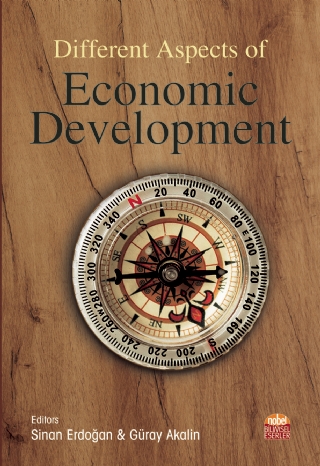
Economic development is a sophisticated process that covers economic, social, political, and cultural progress and focuses on raising human well-being. Therefore, it has many components such as economic growth, health, education, income distribution, institutional progress, financial development so forth. From this point of view, several contemporary issues in economic development have been investigated in this book. Within this regard, it aims to provide both empirical and theoretical contributions to the existing literature. Each chapter of the book has been written by scholars who are experts in their fields, and their findings provide significant information and empirical proofs for policymakers. Moreover, it may provide deep insights for graduate students and scholars studying economic development, and it contains information and analysis to be taught in postgraduate courses and to be used in postgraduate papers.
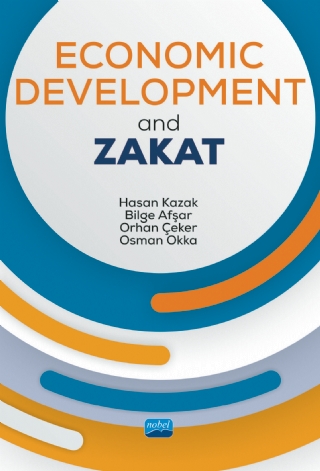
An integrated system, Islam consists of several subsystems. The economy has an important place in these sub-systems. In this respect, Islam also includes regulations on economic growth and development. Undoubtedly, the most important of these regulations is the zakat institution. Zakat was mentioned in many parts of Koran with the prayer, accepted as the pillar of religion in many places and an important message that zakat and prayer should not be separated was given.
The most known and prominent feature of the zakat institution is its contribution to the fair distribution of national income, which is an important indicator in terms of economic development. A lot of work has been written on this subject and this issue has been mentioned in almost every sermon of Islamic scholars. However, the zakat institution has much more significance and benefits in terms of economic growth and development process.
The main purpose of this study is to create a resource for the qualitative and quantitative studies that will be carried out, by revealing other contributions of zakat to economic growth and development, which are not in the foreground but are actually much more functional as well as its other well-known contribution to income distribution.
The most known and prominent feature of the zakat institution is its contribution to the fair distribution of national income, which is an important indicator in terms of economic development. A lot of work has been written on this subject and this issue has been mentioned in almost every sermon of Islamic scholars. However, the zakat institution has much more significance and benefits in terms of economic growth and development process.
The main purpose of this study is to create a resource for the qualitative and quantitative studies that will be carried out, by revealing other contributions of zakat to economic growth and development, which are not in the foreground but are actually much more functional as well as its other well-known contribution to income distribution.

La Première Guerre mondiale était une compétition pour diviser le pillage des terres ottomanes entre les grandes puissances de l'époque. Les attaques impérialistes sont venues des deux côtés. La défense de l’État (ottoman) sur le front oriental, n’a rien de différent de sa défense sur la péninsule de Gallipoli à l’ouest, en termes de sécurité de tous les peuples du pays.
Ensuite, le gouvernement n'a pas eu d'autre choix que de mettre en pratique la pratique de la déportation pour éviter la rébellion, à savoir: la trahison arménienne, qui est aujourd'hui généralement symbolisé par la date du 24 avril 1915, qui devient également une veille du "débarquement britannique à Gallipoli".
Le décret de réinstallation émis par le gouvernement ottoman visait à empêcher les résidents locaux de soutenir, de renforcer et d'inciter les mouvements arméniens agressifs, qui se battaient volontiers pour l'armée adversaire (russe) contre leur propre pays, étant eux-mêmes et aux citoyens de l'Empire ottoman. En plus de cela, sous la forme de gangs armés organisés, ils assassinaient des innocents turcs et / ou musulmans de la région.
Cette décision de réinstallation temporaire a également résolu d'autres problèmes au sein des lignes de communication logistique de l'armée et des autres lignes d'approvisionnement, qui ont été empêchés par ces gangs.
Des gangs arméniens poignardaient l'armée ottomane dans le dos, et des mutinés arméniens causaient encore d'autres maux tels que torturer et massacrer honteusement des femmes, des personnes âgées et des enfants dans les maisons turco-musulmanes laissées par les jeunes de la maison, ceux qui étaient alors occupés à mener des batailles féroces sur les lignes de front d'une guerre féroce, ce que ces gangs faisaient était exactement un "nettoyage ethnique", que dans ces circonstances, la décision de l'État était une précaution obligatoire de la situation de guerre stratégique.
Ensuite, le gouvernement n'a pas eu d'autre choix que de mettre en pratique la pratique de la déportation pour éviter la rébellion, à savoir: la trahison arménienne, qui est aujourd'hui généralement symbolisé par la date du 24 avril 1915, qui devient également une veille du "débarquement britannique à Gallipoli".
Le décret de réinstallation émis par le gouvernement ottoman visait à empêcher les résidents locaux de soutenir, de renforcer et d'inciter les mouvements arméniens agressifs, qui se battaient volontiers pour l'armée adversaire (russe) contre leur propre pays, étant eux-mêmes et aux citoyens de l'Empire ottoman. En plus de cela, sous la forme de gangs armés organisés, ils assassinaient des innocents turcs et / ou musulmans de la région.
Cette décision de réinstallation temporaire a également résolu d'autres problèmes au sein des lignes de communication logistique de l'armée et des autres lignes d'approvisionnement, qui ont été empêchés par ces gangs.
Des gangs arméniens poignardaient l'armée ottomane dans le dos, et des mutinés arméniens causaient encore d'autres maux tels que torturer et massacrer honteusement des femmes, des personnes âgées et des enfants dans les maisons turco-musulmanes laissées par les jeunes de la maison, ceux qui étaient alors occupés à mener des batailles féroces sur les lignes de front d'une guerre féroce, ce que ces gangs faisaient était exactement un "nettoyage ethnique", que dans ces circonstances, la décision de l'État était une précaution obligatoire de la situation de guerre stratégique.

La Primera Guerra Mundial fue una competición de repartimiento el saqueo de tierras otomanas entre las grandes potencias de la época. Los asaltos imperialistas venían por ambos lados. La defensa del Estado (Otomano) en el 'frente oriental' no era nada diferente de su defensa en la Península de Gallipoli en el occidente, en términos de la seguridad de todos los pueblos del país.
Entonces el gobierno no tenía más remedio que poner en vigor la práctica de deportación para evitar la rebelión, i.e: la traición, armenia, la que hoy suele ser simbolizada por la fecha del 24 de abril de 1915, el que también pasa a ser un día antes del 'desembarco británico en Gallipoli'.
El decreto de reubicación emitido por el Gobierno Otomano tenía la intención de impedir a los residentes locales apoyar, reforzar e instigar a los agresivos movimientos armenios, quienes voluntariamente estaban luchando por el ejército adversario (ruso) en contra a su propio país, siendo ellos mismos ya los ciudadanos del Imperio Otomano. Además de esto, en forma de unas bandas armadas que organizaban, estaban asesinando a las inocentes gentes turcas y/o musulmanas de la zona.
Esta decisión de recolocación temporaria resolvió también unos otros problemas dentro de las líneas de comunicación logísticas del ejército y las otras líneas de suministro, las que se impedían por éstas bandas.
Las pandillas armenias estaban apuñalando al ejército otomano por la espalda y los mutinos armenios causaban aun otros males como que torturaban y masacraban vergonzosamente a las mujeres, a los ancianos y a los niños en las casas turcas/musulmanes dejadas atras por los jóvenes de la casa, quienes entonces estaban ocupados luchando feroces batallas en las líneas del frente de una feroz guerra, lo que hacian aquellas bandas era exactamente una “limpieza étnica”, que en estas circunstancias, la decisión del estado era una precaución obligatoria del la situación estratégica bélica.
Entonces el gobierno no tenía más remedio que poner en vigor la práctica de deportación para evitar la rebelión, i.e: la traición, armenia, la que hoy suele ser simbolizada por la fecha del 24 de abril de 1915, el que también pasa a ser un día antes del 'desembarco británico en Gallipoli'.
El decreto de reubicación emitido por el Gobierno Otomano tenía la intención de impedir a los residentes locales apoyar, reforzar e instigar a los agresivos movimientos armenios, quienes voluntariamente estaban luchando por el ejército adversario (ruso) en contra a su propio país, siendo ellos mismos ya los ciudadanos del Imperio Otomano. Además de esto, en forma de unas bandas armadas que organizaban, estaban asesinando a las inocentes gentes turcas y/o musulmanas de la zona.
Esta decisión de recolocación temporaria resolvió también unos otros problemas dentro de las líneas de comunicación logísticas del ejército y las otras líneas de suministro, las que se impedían por éstas bandas.
Las pandillas armenias estaban apuñalando al ejército otomano por la espalda y los mutinos armenios causaban aun otros males como que torturaban y masacraban vergonzosamente a las mujeres, a los ancianos y a los niños en las casas turcas/musulmanes dejadas atras por los jóvenes de la casa, quienes entonces estaban ocupados luchando feroces batallas en las líneas del frente de una feroz guerra, lo que hacian aquellas bandas era exactamente una “limpieza étnica”, que en estas circunstancias, la decisión del estado era una precaución obligatoria del la situación estratégica bélica.

This book serves as a guide for English teachers who teach at the pre-school and primary school levels, for preservice teachers who will teach English to young learners after graduation, and for bilingual parents who want to review pedagogical sources and practical samples, particularly for following an effective route in teaching English to young learners. The book introduces key concepts through definitions, explanations, and theoretical information with implementable and accessible activities and samples that can broaden the limits of classroom learning. Literally, the book presents general information about theoretical considerations relevant to the nature of language, syllabus design for English lessons and commonly used methods in teaching English to young learners with practical samples. Plus, techniques, principles, and materials needed to develop language skills in foreign language teaching and to improve vocabulary are focused. Exploring how to teach grammar in a comprehensible and remarkable way, classroom management, assessment techniques and the relationship between the language and culture in teaching English to young learners are also addressed. Last but not least, the book aims to encourage language teachers to consider interesting ways to make their classroom more colourful when teaching English as a foreign language to young learners.
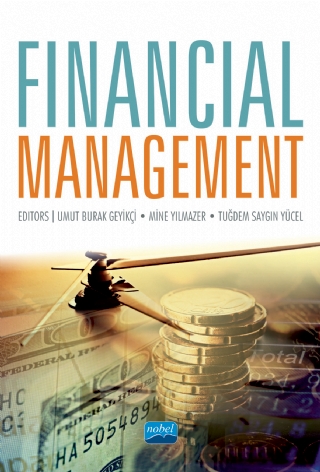
This is a precious book for the students of finance, economics and business administration who want to gain knowledge on financial institutions, calculations and markets. On the other hand I strongly recommend this book who want to learn these complicated topics in an easy way.
Dr. Mahfi Eğilmez
This book covers all topics related to financial management. The most important feature of the book is that it contains plenty of examples on each subject in order to facilitate students' comprehension. In addition, it will be easier to understand the unit as a whole with the end of the section evaluations consisting of classic and test questions. Many factors have been instrumental in the emergence of this book. First of all, there are over a hundred business management and similar departments providing education in English at universities in Turkey. Among the books taught in these schools, the number of financial management books written in English is extremely limited. Second, the English financial Management books used in these schools are of UK and North American origin. So theories, examples, practices are largely related to these countries. Third, financial management books written and sold in the UK and North America are very expensive, which is quite high for students studying in Turkey. Fourth, as a developing country, financial practices in Turkey, the financial structures and environment of companies are quite different from developed countries.
The challenges mentioned above are the main sources of motivation for writing this book. The faculty members involved in the book's writing are people who have experienced those challenges. All have a long educational background and besides they are involved in the financial markets and some of whom are in decision-making positions. Each of the sections contains real world and Turkey examples, values, current financial practices and new theories. The price of this book has been kept as low as possible. Thus, it is aimed to contribute to both our students and the economy of the country.
Financial managers, students, academicians and other interested in the financial sector will benefit from the theories, examples, problem solutions and recommendations contained in the book. We wish the book to be useful to students and all interested in finance.
Dr. Mahfi Eğilmez
This book covers all topics related to financial management. The most important feature of the book is that it contains plenty of examples on each subject in order to facilitate students' comprehension. In addition, it will be easier to understand the unit as a whole with the end of the section evaluations consisting of classic and test questions. Many factors have been instrumental in the emergence of this book. First of all, there are over a hundred business management and similar departments providing education in English at universities in Turkey. Among the books taught in these schools, the number of financial management books written in English is extremely limited. Second, the English financial Management books used in these schools are of UK and North American origin. So theories, examples, practices are largely related to these countries. Third, financial management books written and sold in the UK and North America are very expensive, which is quite high for students studying in Turkey. Fourth, as a developing country, financial practices in Turkey, the financial structures and environment of companies are quite different from developed countries.
The challenges mentioned above are the main sources of motivation for writing this book. The faculty members involved in the book's writing are people who have experienced those challenges. All have a long educational background and besides they are involved in the financial markets and some of whom are in decision-making positions. Each of the sections contains real world and Turkey examples, values, current financial practices and new theories. The price of this book has been kept as low as possible. Thus, it is aimed to contribute to both our students and the economy of the country.
Financial managers, students, academicians and other interested in the financial sector will benefit from the theories, examples, problem solutions and recommendations contained in the book. We wish the book to be useful to students and all interested in finance.
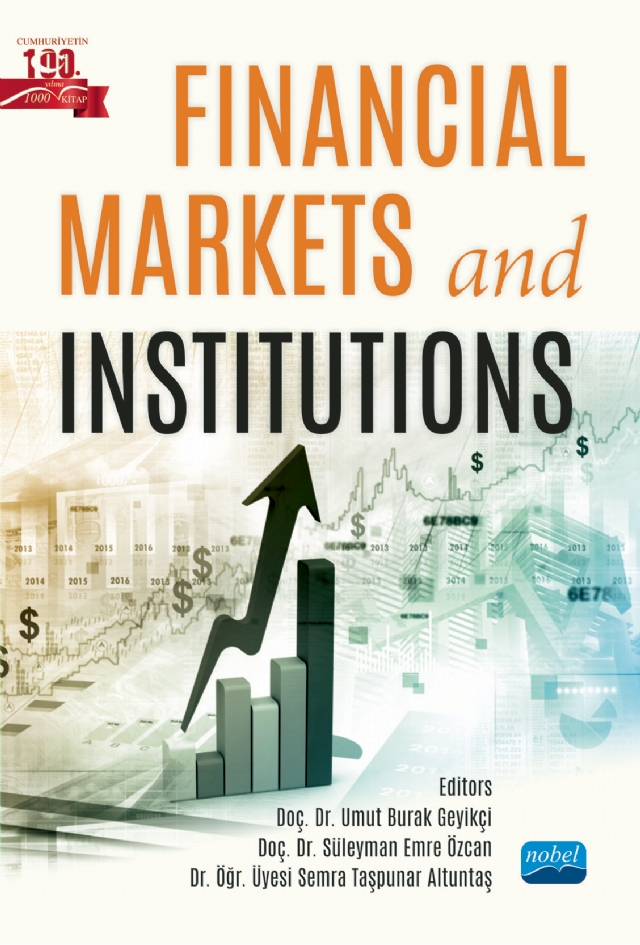
This book covers all topics related to financial markets. Financial Markets and Institutions offers a distinct analysis of the risks faced by investors and savers interacting through financial institutions and financial markets. It also introduces strategies that can be adopted to control and manage risks. Each chapter is further enriched by providing topical coverage in Turkey context, followed by questions and mini-cases at selected chapters. Each chapter first gives an overiew and identifies learning objectives. Furthermore, we make abundant use of graphs and tables to give relevant people a comprehensive overview of the Turkey financial system.
This textbook's strong market focus and superior pedagogy are combined with a complete digital solution to help students achieve higher outcomes in the course. Combining theory, data and policy, this successful book examines and explains financial markets, financial infrastructures, financial institutions and the challenges of financial supervision and competition policy.
This textbook's strong market focus and superior pedagogy are combined with a complete digital solution to help students achieve higher outcomes in the course. Combining theory, data and policy, this successful book examines and explains financial markets, financial infrastructures, financial institutions and the challenges of financial supervision and competition policy.

An aging society and a stable economy have forced Japan to receive more immigrants and to open its doors to the world, in contrast to the nation's historical distancing away from internationalization and immigration. Although the country is struggling with a labor shortage in almost all sectors, the main target of its immigration policy has always been highly-skilled and low-skilled labor rather than unskilled ones. Historically, the country has tried many different ways to attract more qualified immigrants.
In the late 20th century, the country decided to increase the reputation of its universities and research institutions with research parks and science cities, which could be useful tools to enhance technology and knowledge transfer. In this context, Tsukuba Science City was created and promoted by the Japanese central government.
As this book argues, Japan is using science cities to attract more qualified, highly-skilled immigrants by facilitating them with a scientific environment. However, is it enough to attract international highly-skilled researchers with only physical infrastructure? What other factors can be effective in swaying people's decisions to immigrate? What do international immigrants really experience?
This book uncovers unheard voices of highly-skilled immigrants in Tsukuba Science City (Japan), which will help to understand the experiences of academic immigrants from the immigrants' views centered on a phenomenological perspective of social (cultural) anthropology. Only then, the role of highly-skilled immigrants in generating a Japanese science city could be truly understood.
In the late 20th century, the country decided to increase the reputation of its universities and research institutions with research parks and science cities, which could be useful tools to enhance technology and knowledge transfer. In this context, Tsukuba Science City was created and promoted by the Japanese central government.
As this book argues, Japan is using science cities to attract more qualified, highly-skilled immigrants by facilitating them with a scientific environment. However, is it enough to attract international highly-skilled researchers with only physical infrastructure? What other factors can be effective in swaying people's decisions to immigrate? What do international immigrants really experience?
This book uncovers unheard voices of highly-skilled immigrants in Tsukuba Science City (Japan), which will help to understand the experiences of academic immigrants from the immigrants' views centered on a phenomenological perspective of social (cultural) anthropology. Only then, the role of highly-skilled immigrants in generating a Japanese science city could be truly understood.

Although Turkish culture has a unique sense of humor, humor culture has changed with the change of space and culture. Therefore, we found it appropriate to examine Turkish literature under the titles of Pre-Islamic Turkish Literature, Turkish Folk Literature, Old Turkish Literature and New Turkish Literature while addressing the adventure of humor in the history of Turkish literature.
We have included the concepts of irony, parody and satire, which are frequently used together with humor or as sub-types of humor in Western literature in order to determine the effect of the Western sense of humor on the Turkish literature's sense of humor. While pointing to the historical development of these concepts, we also tried to identify their samples in the Turkish humor tradition. We tried to determine the counterparts of these genres in the Turkish novel, which is on the verge of innovation, by considering especially the literature of the Second Constitutional Period, in which the Turkish culture was in touch with the West. Therefore, we mentioned the changes of humor and the concepts related to humor in the history of Turkish literature and during the Second Constitutional Period, in which the influence of Western literature was strongly felt, the new meanings that humor concept has gained. As a result, we dealt with the author's purpose in using humor, the form that the author uses in creating humor and the issues criticized through humor.
We also included a chapter on humor in English literature to juxtapose the comic effect in English and Turkish literature. This chapter on humor in English literature helps to envision the sense of humor in Western tradition and see the similarities between English and Turkish literary works in terms of comedy and humor.
We have included the concepts of irony, parody and satire, which are frequently used together with humor or as sub-types of humor in Western literature in order to determine the effect of the Western sense of humor on the Turkish literature's sense of humor. While pointing to the historical development of these concepts, we also tried to identify their samples in the Turkish humor tradition. We tried to determine the counterparts of these genres in the Turkish novel, which is on the verge of innovation, by considering especially the literature of the Second Constitutional Period, in which the Turkish culture was in touch with the West. Therefore, we mentioned the changes of humor and the concepts related to humor in the history of Turkish literature and during the Second Constitutional Period, in which the influence of Western literature was strongly felt, the new meanings that humor concept has gained. As a result, we dealt with the author's purpose in using humor, the form that the author uses in creating humor and the issues criticized through humor.
We also included a chapter on humor in English literature to juxtapose the comic effect in English and Turkish literature. This chapter on humor in English literature helps to envision the sense of humor in Western tradition and see the similarities between English and Turkish literary works in terms of comedy and humor.

Despite its standing in world politics, there is still a paucity of academic publications concerning Turkish foreign policy. In addition, most of the existing publications prefer only to narrate it historically.
This book takes a step back and critically analyses the factors and actors which affect Turkish foreign policy within a theoretical and conceptual framework as well as a historical setting covering the Kemalist period in particular. In addition, this book presents its subject matter from a broader and longer perspective, taking together both material and ideational phenomena, all the while focussing on the ideas, ideologies and norms which are ignored by many analysts of Turkish politics.
Turkish foreign policy of the past and even up to the present appears to be a product of certain “foundations” that were laid down by the Kemalist leadership and cadres after the establishment of the Turkish Republic. However, this book reviews these foundations comparatively with the Ottoman modernisation period including as well certain detailed references to the classical age of the Empire in order to demonstrate that there are not so much epistemological ruptures between past and present in a broader sense.
This book takes a step back and critically analyses the factors and actors which affect Turkish foreign policy within a theoretical and conceptual framework as well as a historical setting covering the Kemalist period in particular. In addition, this book presents its subject matter from a broader and longer perspective, taking together both material and ideational phenomena, all the while focussing on the ideas, ideologies and norms which are ignored by many analysts of Turkish politics.
Turkish foreign policy of the past and even up to the present appears to be a product of certain “foundations” that were laid down by the Kemalist leadership and cadres after the establishment of the Turkish Republic. However, this book reviews these foundations comparatively with the Ottoman modernisation period including as well certain detailed references to the classical age of the Empire in order to demonstrate that there are not so much epistemological ruptures between past and present in a broader sense.

In the 21st century, education became one of the most crucial elements in people's lives. Day-by-day, finding a well-paid job is getting tough process for young people. Notably, higher education plays a highly-critical role in the people's careers.
Most of developed and developing countries have started international student projects which aim to increase number of international students. Japan also is one of those countries with various projects. Japan provides the MEXT (Monbukagakusho) Scholarship by Japan's central government.
• Why countries invest on international students?
• Would it be a soft power tool for a host country?
• What do international students think about it?
This book focuses on the perspective of the international students:
• What are the motivations for them for choosing Japan?
• What are their career goals?
• How those goals are being evaluated?
• How do they perceive the Japanese government's MEXT scholarship project?
Most of developed and developing countries have started international student projects which aim to increase number of international students. Japan also is one of those countries with various projects. Japan provides the MEXT (Monbukagakusho) Scholarship by Japan's central government.
• Why countries invest on international students?
• Would it be a soft power tool for a host country?
• What do international students think about it?
This book focuses on the perspective of the international students:
• What are the motivations for them for choosing Japan?
• What are their career goals?
• How those goals are being evaluated?
• How do they perceive the Japanese government's MEXT scholarship project?
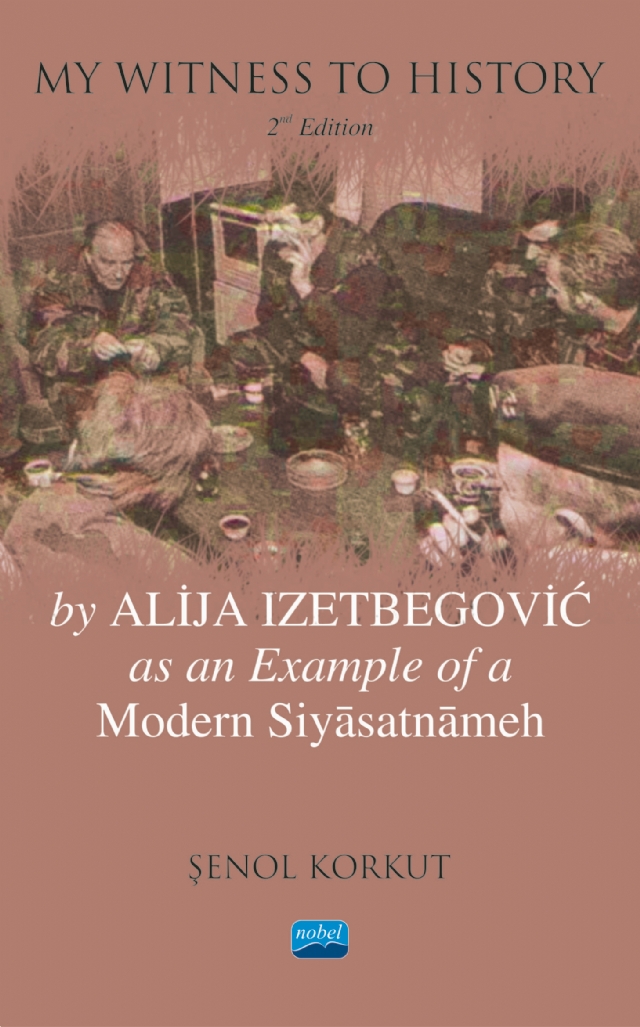
This book, subjects the basic dynamics of the Muslims of Bosnia and Herzegovina to a new reading through the memories of Alija Izetbegović (1925-2003), one of the most important Muslim intellectuals of the twentieth century. Izetbegović's pursuit of truth in his childhood and youth and his attitude towards the ideologies around him are taken in terms of the way a Muslim intellectual was brought up in the modern world. In the second part of the study, the importance of the Islamic Declaration for the current Islamic world, how to keep the Muslim identity alive under all conditions and the Islamic method to be developed for the policies of dimming the Muslim identity are examined. In the third part of the study, the importance of a Muslim party on the basis of the SDA and the principles to be derived from the struggle for existence during the Bosnia-Herzegovina war were examined. In the last part of the study, the current situation in Bosnia and Herzegovina after Dayton is discussed. The book seeks to construct a modern Siyāsatnāmeh based on the memories of Izetbegović.
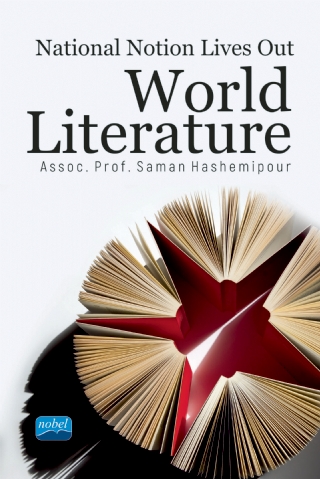
National Notion Lives Out World Literature is a collection of essays on literature. Discussing genres of fiction and must-to-know literary terms with examples help literary fans to understand the core of literature. Discussing the history of novels in Turkish and drama plays in Persian helps the reader to have a conscious view of fiction in Turkey and Iran. Besides, comparative literature in Eastern universities and the value of literary works in world literature are discussed. A comparative method of investigation and psychological stance is applied to evaluate literary and critical works to realize the concept of national literature in the realm of world literature.
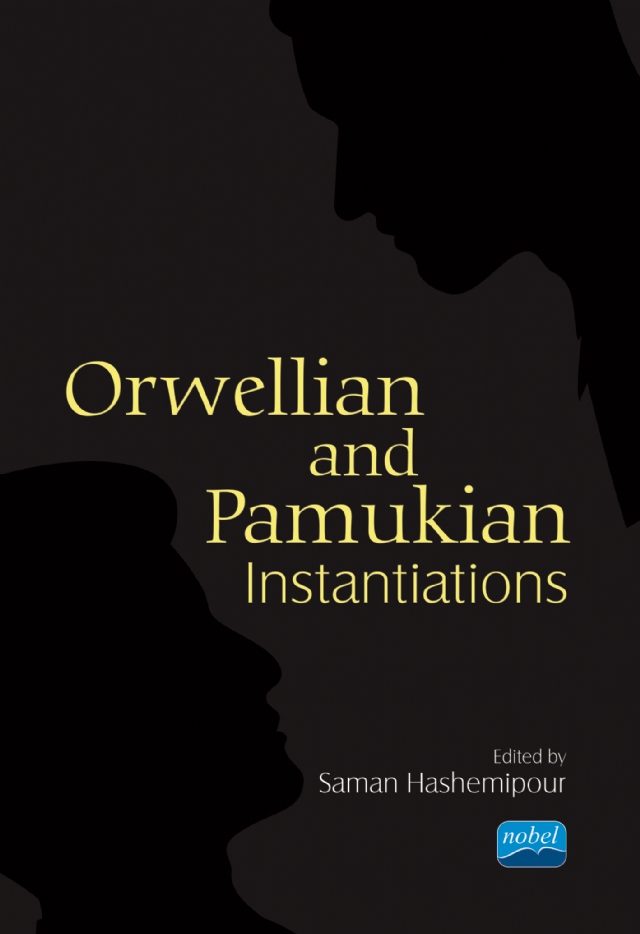
This book juxtaposes eight chapters by four authors about literary masterpieces by Orhan Pamuk and George Orwell. The common themes in the Pamukian and Orwellian context, such as hegemony, tensions between two discourses, false reality, degeneration of society, east-west conflict, imagined cities, nationalism, and the new historicist perspective on dystopia are fellow ground for the signified, well-analyzed, Eastern and Western authors. Furthermore, through instantiations, the Pamukian and Orwellian academic discourses in the medium of coordinating conjunctions of the past, present, and future of humanity are illustrated.
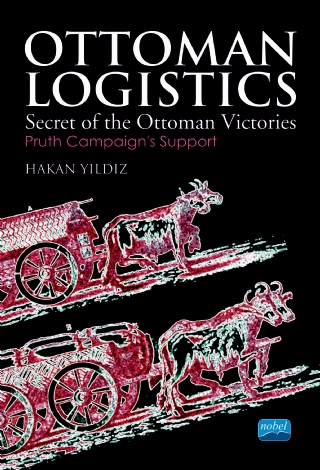
ow much are we aware thet the secret of the Ottoman Empire's success in spreading three continents lies within the well-thought, planned and realized organizationsas as much as the valour and braveness?
Years long archive researches provides countless information for us to imagine this campaign organized in 1711 with its all.
...from the official war declaration following the opinion-taking meetings of the Sultan to the imperial orders issued to initiate the preparations on the campaign route...
...from ovens constructed in each range where the army would take a break to be able to provide them with fresh bread to the buzcus who would start to serve at the end of the winter season in order to keep foods and beverages cold...
...from seeing janissaries off from Istanbul with festivals to the arrival of the soldiers coming from numerous states at the determined points...
Briefly, as discovering the “Secret of the Ottoman Victories”, this book presents an alive panorama of a forgotten world.
Years long archive researches provides countless information for us to imagine this campaign organized in 1711 with its all.
...from the official war declaration following the opinion-taking meetings of the Sultan to the imperial orders issued to initiate the preparations on the campaign route...
...from ovens constructed in each range where the army would take a break to be able to provide them with fresh bread to the buzcus who would start to serve at the end of the winter season in order to keep foods and beverages cold...
...from seeing janissaries off from Istanbul with festivals to the arrival of the soldiers coming from numerous states at the determined points...
Briefly, as discovering the “Secret of the Ottoman Victories”, this book presents an alive panorama of a forgotten world.

If we raise our heads and look around us carefully, we can see where consumerism has reached in the world. The opportunities created by all this consumption volume cause companies to compete with each other. The more customers they can attract, the more competitive advantage they will have. At this point, understanding consumer behavior is crucial. Since behavior is directly related to an individual's personality, analyzing personality traits might help in understanding the behaviors that consumers will display. Marketing practitioners who establish a relationship between personality traits and consumer behavior and recommend sales promotions according to this relationship will always be one step ahead of their competitors. This book aims to analyze the relationship between personality traits and consumer decision-making styles and predict how consumers are likely to choose sales promotions that are framed. Moreover, marketing practitioners can find an informative Executive Summary at the end of the book. The book gives a general idea about personality traits, personality theories and consumer decision-making process that may help undergraduate and graduate students interested in this field.

The main audience for this book is expected to be language teaching professionals and EFL learners at different levels, although educators at all levels may find it useful. Over the last three decades, phraseology and the supremacy of multi-word combinations in various forms and labels have enjoyed a crucial role in understanding how the English language functions in terms of lexicality. The necessity of studying multi-word combinations has been advocated, and the inclusion of computational methods has been favoured by many leading linguistic specialists. Thus, this book is intended to introduce the lexical features of the English language to language teaching professionals and EFL learners worldwide through contextual examples. After a short introduction, the scope of the book is further extended to include English verbs with their most frequent complements. Each chapter offers literature connections related to phraseology, formulaic sequence, and lexical approach. Finally, a comprehensive list of multi-word combinations was added in the form of tables to support language teaching professionals and EFL learners inside and outside the classroom in their attempts to increase phraseological awareness.

Foreign (English) language teacher education has heretofore produced a plethora of theories, methods, procedures, and techniques, most of which are virtually based on a specific philosophical paradigm. In this vein, this book outlines and expatiates the cutting-edge pedagogy named as post-method pedagogy on the grounds of post-modern educational philosophy, the critiques imposed on the ‘method’ concept and the conventional teaching methods, complexity of the ELT profession, and the subjective role of ELT professionals - specifically language teachers. By virtue of the author’s three discretional rationales, the post-modern educational philosophy, theoretical postulations in post-method pedagogy, and the conducted pertinent research, the author orchestrated his own personal and professional ELT small-scale theory under the framework of four continuous teacher development, three post-method parameters, and the personal and professional qualities that ELT professionals might adopt.

After the Cold War, International Relations has seen a resurgence of interest in the study of regional powers. Scholars have been paying increasing attention to regional powers as important actors in world politics and studying their foreign policy, but few if any studies have discussed the behaviors of regional power comprehensively and comparatively. The purpose of this book is to gain a better understanding of regional power foreign policy strategies and behaviors by analyzing them comprehensively and comparatively. Unlike previous studies on cooperation and conflict within regions, this study focuses on the reasons for the strategic tendencies and motivations of regional hegemons and great powers and their effects on regional cooperation and conflict. Moreover, departing from Hegemonic Stability Theory, this book also aims to explore similarities and differences between regional and global hegemonic foreign policy strategies.

The most significant aim of the businesses, which are an integral part of the economic system, is to create value maximization. The financial performance of businesses plays a key role in achieving this aim. Financial performance analysis is an effective criterion for businesses to achieve their goals, to adapt to changing conditions in the market, to improve the way of doing businesses and to be able to take measures against possible problems.
In this regard, this book, which includes the analysis of the financial performances of companies in several sectors through various statistical methods, has an important value in terms of including the studies and evaluations of many academicians who have doctoral degrees in their field and work in different universities.
In this regard, this book, which includes the analysis of the financial performances of companies in several sectors through various statistical methods, has an important value in terms of including the studies and evaluations of many academicians who have doctoral degrees in their field and work in different universities.
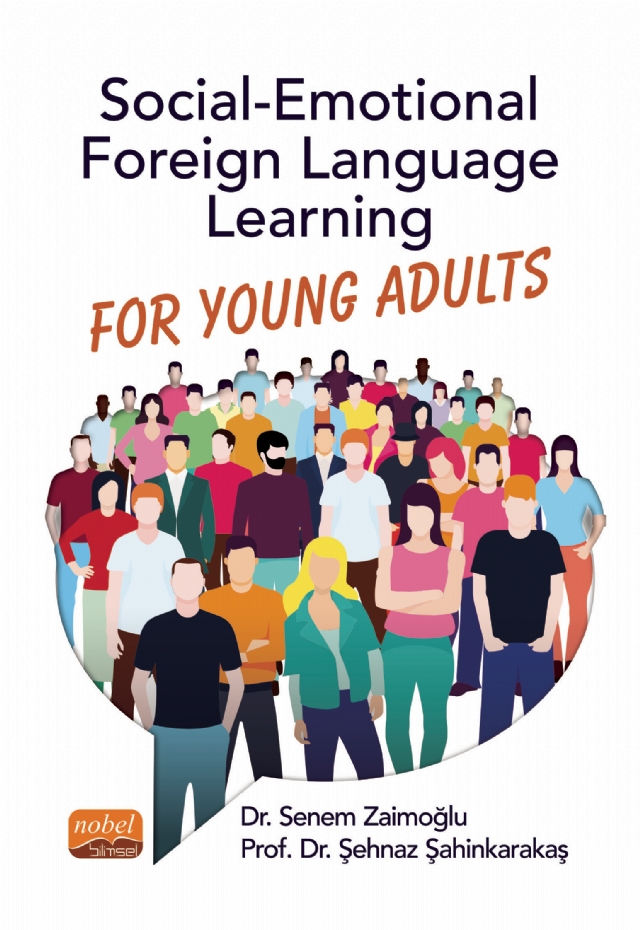
The objective of educational research has always been to better understand language learning. However, as research on learning psychology and other related fields has progressed, people's perceptions of language learning have shifted. The purpose of this book is to shed new light on the understanding of social-emotional aspects of language learning together with core issues among young adults in a variety of language learning contexts. The particular feature of this book is to integrate the socially and the emotionally oriented perspectives of language learning. It brings the current situation among young adults to the light by focusing on the necessity of social-emotional competences for young adults in a rapidly changing society that requires them to deal with a variety of problems, stressful situations, and competing goals. In particular, the book offers unique insights into the new framework of social-emotional foreign language learning together with its theoretical foundations. Additional feature of this book is its discussion of different social-emotional assessments used in social-emotional learning. The book concludes by calling for SEL programs for young adults, which will support their social and emotional well-being in their language learning journey.

Security studies have an important position in the discipline of International Relations. Among them, the work of the Copenhagen School has contributed to the literature significantly. One of the most prominent theories of the Copenhagen School is the issue of securitization and societal security. Securitization is the process of seeing any issue that causes security concerns as a threat, through speech acts and it occurs at the end of the process. On the other hand, societal security is a security threat on the identity of the society. The key theme for societal security is the identity. If a society thinks that a subject poses a threat to its own identity, societal securitization occurs. One of the most suitable topics for societal securitization is the issue of immigrants. In this book, the issue of Syrian refugees in Turkey was analyzed by content analysis of the speeches of the parliamentarians in the Turkish Grand National Assembly, and the tweets that were posted on Twitter. While doing this, both these two research universes were compared and the development of the subject over the years was examined from the perspective of societal securitization. This book also addresses the various dilemmas and security dilemmas that contribute to this process.

This book analyzes the role of soft power in Qatar's foreign policy. Although Qatar is a small state, it could ensure its sovereignty and security through its soft power instruments. Thanks to hydrocarbon revenues, the Sheikhdom could become a regional actor through its assertive foreign policy, established one of the biggest media companies, namely Al Jazeera TV network, made new friends by foreign aid and overseas investments, could win the bid for hosting FIFA 2022 World Cup, and so on. In addition, personal efforts of incumbent Emir Tamim Al-Thani, former Emir Hamad Bin Khalifa and his wife Sheikha Moza have shown how soft power of individuals can change the destiny of a country. The book analyzes Qatar for the concept of soft power since the small country is one of the most successful countries wielding soft power. It also lays down the author's theories about the concept, which he tries to include to the literature.

TAKE CARE OF YOUR BRAIN. BE YOUR OWN CURE.
Cognitive decline can mean many things and it can take on many shapes. Most of us, for instance, are at least vaguely familiar with diseases such as dementia. The effects and consequences of these diseases have already been heavily codified in our collective consciousness. We see it in movies. Maybe we've heard about it from our friends and relatives. Some of us may even have direct experience caring for a loved one suffering from the effects of dementia. But regardless of whether or not we've had direct experience with someone with cognitive impairment, we know that it can wreak havoc on not just the individuals, but also their families and communities.
However, cognitive decline can also mean something much less drastic. It can look like something as innocuous as forgetting certain words, or names, or places, or dates, or forgetting where you put your keys, or what you went to the grocery store for. It can look like depression or withdrawal. It can look like a lack of focus or attention. Whether or not you're concerned about having dementia in the future, the fact of the matter is that, after a certain point in our lives, all of our brains and their cognitive functions are going to get worse. It's just a matter of when and how severe. But there are things we can do to combat this, to stave off the inevitable. By taking control of your lifestyle, you can take control of your cognitive health. You can be your own cure for dementia.
Cognitive decline can mean many things and it can take on many shapes. Most of us, for instance, are at least vaguely familiar with diseases such as dementia. The effects and consequences of these diseases have already been heavily codified in our collective consciousness. We see it in movies. Maybe we've heard about it from our friends and relatives. Some of us may even have direct experience caring for a loved one suffering from the effects of dementia. But regardless of whether or not we've had direct experience with someone with cognitive impairment, we know that it can wreak havoc on not just the individuals, but also their families and communities.
However, cognitive decline can also mean something much less drastic. It can look like something as innocuous as forgetting certain words, or names, or places, or dates, or forgetting where you put your keys, or what you went to the grocery store for. It can look like depression or withdrawal. It can look like a lack of focus or attention. Whether or not you're concerned about having dementia in the future, the fact of the matter is that, after a certain point in our lives, all of our brains and their cognitive functions are going to get worse. It's just a matter of when and how severe. But there are things we can do to combat this, to stave off the inevitable. By taking control of your lifestyle, you can take control of your cognitive health. You can be your own cure for dementia.
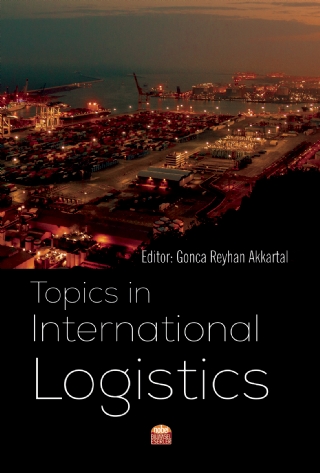
In the last decades, logistics and supply chain management have been the indispensable part of trade. By globalization, supply chains and logistic operations multiplied their importance. There have been many factors affecting logistics today. Not only the operational part but also the planning part has diversified areas. As a matter of fact technology helped the logistics industry too much. Although purchasing and many other transactions can be made via internet, goods must be delivery by the last mile. Finance, warehousing, procurement, management, organization, recycling and transportation of goods and services are parts of logistics and they have many sub-branches.

In unserer globalisierten und hochdynamischen Welt ändern sich die Gesellschaften und die Menschen zu pluralen Identitäten, welche für das translatorische Handeln neue Herausforderungen stellen. Die Transkulturalität prägt die heutigen Gesellschaften. Diese Entwicklungen haben Auswirkungen auf die Übersetzerentscheidungen.
Im Zuge der Globalisierung haben sich ökonomische Abhängigkeiten in unserem globalen Dorf gebildet. Weltweite Migrationsbewegungen, Kommunikationsmöglichkeiten, Verkehrsverbindungen und Medien haben zum wechselseitigen Austausch zwischen Menschen beigetragen. Translatoren und die Leserschaft unterliegen auch dieser dynamischen und transkulturellen Entwicklung. Diese Arbeit versucht zu zeigen, wie die kulturellen Elemente, d. h. Kulturreferenzen in literarischen Texten eingebaut sind und durch welche Übersetzungsverfahren diese Elemente in die Zielkultur funktionsgerecht transferiert werden können. In dieser Arbeit geht es nicht darum, literarische Texte zu analysieren, sondern Kulturreferenzen in den Texten herauszuarbeiten. Als Korpus dienen bereits veröffentlichte literarische Übersetzungen ins Deutsche von 9 renommierten türkischen Autoren.
Im Zuge der Globalisierung haben sich ökonomische Abhängigkeiten in unserem globalen Dorf gebildet. Weltweite Migrationsbewegungen, Kommunikationsmöglichkeiten, Verkehrsverbindungen und Medien haben zum wechselseitigen Austausch zwischen Menschen beigetragen. Translatoren und die Leserschaft unterliegen auch dieser dynamischen und transkulturellen Entwicklung. Diese Arbeit versucht zu zeigen, wie die kulturellen Elemente, d. h. Kulturreferenzen in literarischen Texten eingebaut sind und durch welche Übersetzungsverfahren diese Elemente in die Zielkultur funktionsgerecht transferiert werden können. In dieser Arbeit geht es nicht darum, literarische Texte zu analysieren, sondern Kulturreferenzen in den Texten herauszuarbeiten. Als Korpus dienen bereits veröffentlichte literarische Übersetzungen ins Deutsche von 9 renommierten türkischen Autoren.

This book analyzes Turkey's fight with terrorism, overseas bases and its efforts to produce indigenous weapons. Threats to Turkey have changed and transformed in the last two decades. Besides, struggling with the PKK terrorist organization, the Arab Spring led to the emergence of new existential threats such as ISIS, another terrorist organization, PKK's Syria branch YPG, and waves of migration, originating mainly from Syria. In addition, Turkey incurred a failed military coup perpetrated by FETO (Fetullahist Terrorist Organization) in 2016. Thus, it had to fight PKK, YPG (SDF), ISIS and FETO simultaneously until recent times. On the other hand, Turkey accelerated the production of indigenous weapons from early 2000s onward. As of 2021, more than 70% of Turkish army's military equipment is supplied by local defense companies. Relying on its economy, active foreign policy and advanced weapons, the Turkish state also began to construct military bases in various countries and got involved in clashes.

The private lives structured by television came to light in different ways in eastern and western societies. This study provides concrete examples to the change of private life by making collective and individual culture comparisons through marriage programs. The Comparison of Marriage Shows in Two Cultures seeks to examine the complicated and often polemical terrain of marriage programs while considering their effects on the perceptions of privacy in two different societies: The United States of America and Turkey, in regards to two reality TV marriage shows: The Bachelor and Esra Erol`da Evlen Benimle.
Nowadays privacy is a commodity, property, and according to modern law one can do whatever one wants with it: some choose to sell it, or perhaps otherwise, to acquire an identity is impossible; it is that simple but its structure, content, borders and expression differ according to the impositions of western and eastern cultures.
Nowadays privacy is a commodity, property, and according to modern law one can do whatever one wants with it: some choose to sell it, or perhaps otherwise, to acquire an identity is impossible; it is that simple but its structure, content, borders and expression differ according to the impositions of western and eastern cultures.

Women Behind the Pens: A Brief History of Turkish Feminism involves the historical development of Turkish feminism from Tanzimat Reforms to the modern period in Turkish literature. The book starts with the definitions of 'feminism' and the historical traces of feminism in the western and Turkish cultures. In the analysis part of the book, each chapter is respectively designed for a specific female Turkish author: Emine Semiye Önasya, Fatma Aliye Topuz, Halide Edip Adıvar, Nezihe Muhittin, Nezihe Meriç, Sevgi Soysal, Adalet Ağaoğlu, Erendiz Atasü, Tezer Özlü, Leyla Erbil, Buket Uzuner, Ayşe Kulin, Nazlı Eray and İnci Aral. Through the analysis of literary works and writing styles of the above mentioned authors, the main aim was to remind the readers their undeniable contributions on Turkish feminism. Based on the research, it was concluded that many of the 'women's writings' from Tanzimat period until today provided a common issue in Turkish literature: women need equal education , politic rights, economic independence and freedom of speech to gain a respected place and a voice in society. Therefore, it is desired that this book could contribute to the field in regards to the concepts of Turkish feminism and its historical development.